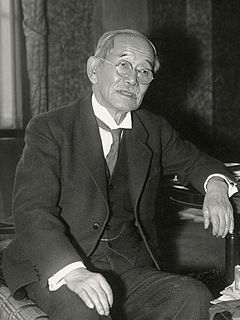Цитата Дэвида Хьюма
Кажется несомненным, что, хотя человек в припадке юмора, после напряженного размышления о многих противоречиях и несовершенствах человеческого разума, может полностью отказаться от всякой веры и мнения, он не может упорствовать в этом тотальном скептицизме или это проявляется в его поведении в течение нескольких часов.
Связанные цитаты
Природа, вызывающая одновременное рождение разума и страстей, по-видимому, желала с помощью последнего дара отвлечь человека от зла, которое она причинила ему первым, и тем, что позволила ему жить лишь несколько лет после утраты. его страстей, кажется, показывает ее жалость ранним избавлением от жизни, которая сводит его к разуму как к его единственному ресурсу.
Должно показаться невероятным, чтобы теизм, исходя из разума, был первичной религией человеческого рода, а впоследствии своим извращением породил политеизм и все различные суеверия языческого мира. Разум, когда он очевиден, предотвращает эти искажения: когда он запутан, он полностью скрывает принципы от познания толпы, которая одна способна исказить любой принцип или мнение.
Недавно я познакомился со знаменитым Томасом Пейном, и он мне очень нравится. Он невероятно тщеславен, но у него есть причины быть тщеславным, и я, со своей стороны, прощаю его. Он творил чудеса во имя свободы как в Америке, так и в Европе, и я считаю его добросовестным и честным человеком. Он очень хорошо разговаривает; и я нахожу его более остроумным в речах, чем в его письмах, где его юмор достаточно неуклюж.
Это первый случай в истории, когда война охватила весь мир, и к тому же она может длиться еще много лет; эта мысль душераздирающая для всех нас, людей. Ужасно думать, что преступления, совершенные этим одним человеком Гитлером, уже много лет разрушают жизни сотен тысяч и миллионов, и можно было бы совсем отчаяться, если бы не было уверенности, что большинство, бесчисленное большинство, которое выступает против него открыто или тайно удастся уничтожить раз и навсегда его и его.
В споре вы можете заставить оппонента замолчать, используя преимущество в силе, богатстве или образовании. Но на самом деле вы его не переубедите. Хотя он уже ничего не говорит, но в душе он по-прежнему остается при своем мнении, и единственный способ заставить его изменить это мнение — говорить тихо и разумно. Когда он поймет, что вы пытаетесь не победить его, а только найти правду, он выслушает вас и, возможно, примет то, что вы ему скажете.
Я знала этого человека до нашего развода - после этого я не знала этого человека, но это не мешало мне заботиться о нем и переживать из-за полной перемены, которую я увидела в нем. Он потерял чувство юмора и стал агрессивным; он больше не был для мира, он был только для Йоко. До этого он раскрыл объятия и обнял мир своим остроумием и юмором - после он был совсем другим человеком.
Человек, который имеет определенные религиозные убеждения и боится обсуждать их, чтобы не оказаться ошибочными, не верен своим убеждениям, он лишь трусливо верен своим предрассудкам. Если бы он был любителем истины, он был бы готов в любой момент отказаться от своей веры в пользу более высокой, лучшей и истинной веры.
Каждый человек чувствует, что восприятие дает ему непобедимую веру в существование того, что он воспринимает; и что эта вера является не следствием рассуждения, а непосредственным следствием восприятия. Когда философы утомили себя и своих читателей своими рассуждениями на эту тему, они не могут ни укрепить эту веру, ни ослабить ее; они также не могут показать, как он производится. Она ставит философа и крестьянина на один уровень; и ни один из них не может привести никакой другой причины верить своим чувствам, кроме того, что он считает невозможным поступать иначе.
Зачем доказывать человеку, что он не прав? Это сделает его похожим на тебя? Почему бы не позволить ему сохранить лицо? Он не спрашивал твоего мнения. Он этого не хотел. Зачем с ним спорить? Вы не можете выиграть спор, потому что, если вы проиграете, вы его проиграете; а если выиграете, то проиграете. Почему? Вы будете чувствовать себя хорошо. Но как насчет него? Вы заставили его чувствовать себя неполноценным, вы задели его гордость, оскорбили его ум, его рассудительность и самоуважение, и он возмутится вашим триумфом. Это заставит его нанести ответный удар, но никогда не заставит его передумать. Человек, убежденный против своей воли, остается того же мнения.
Это вечная и жалкая трагедия практичного человека в практических делах. Он всегда начинает с презрения к тому, что он называет теоретизированием, а люди, умеющие это делать, называют мышлением. Он не будет ждать логики, т. е. в самом точном смысле не будет слушать разум. Поэтому ему покажется праздным и неэффективным утверждение, что есть причина его нынешней неудачи. Тем не менее, может быть, стоит сказать это и попытаться разъяснить это даже ему.







































